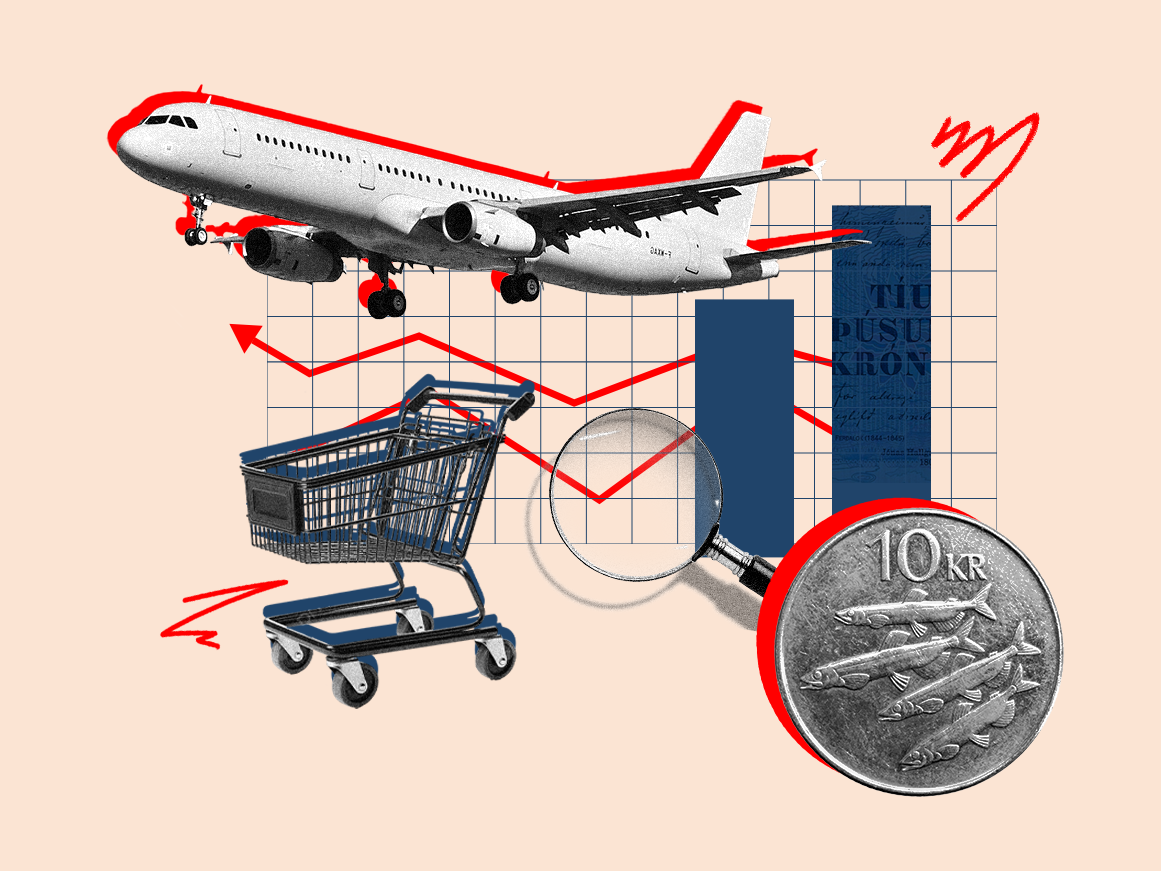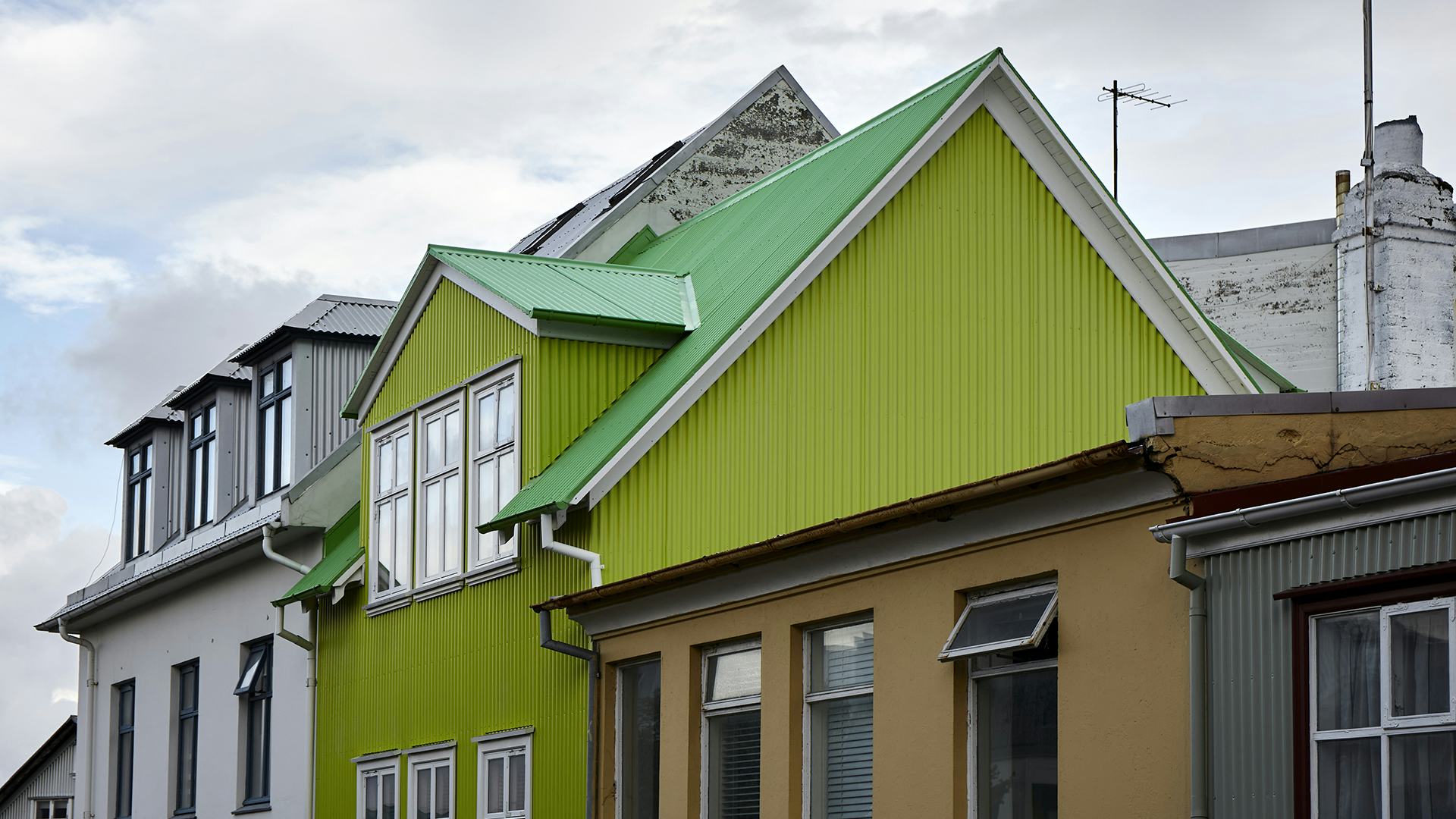According to the most recent count of residential housing under construction by the Housing and Construction Authority (HMS), new projects are down between years. HMS expects the supply of housing in coming years to fall far short of need. If the forecast of HMS holds true, it is not unlikely that price increases in the residential housing market will escalate when interest rate cuts start to encourage demand.
The week ahead
- On Tuesday, Hagar publishes financial statements for 2023, and Síminn and Össur Q1 results.
- On Wednesday, Statistics Iceland is set to publish the CPI. We forecast a decrease in inflation, from 6.8% to 6.1%. Icelandair and Nova klúbburinn release Q1 financial results.
Image of the week
The new housing price index launched by HMS in March shows different development in housing prices in rural Iceland vs. the capital city area. Price pressure appears to have been slightly higher in rural Iceland than the capital area in the past 1-2 years. In July 2023, 12M housing prices in the capital area decreased while prices in rural Iceland continued to rise. The figures show that price pressure in the residential housing market has again grown since mid-2023 and prices in the entire country are currently 5.2% higher than a year ago. This may be due to various factors, such as the Grindavík effect, expectations of higher prices, more consumers taking on equity loans and insufficient supply of new housing. HMS forecasts that only 58% of needed housing will be met by new builds in the coming two years.
Highlights of the previous week
- Last week, the Central Bank of Iceland (CBI) published payment card turnover in March. These figures show a significant decrease in domestic turnover by Icelandic households year-over-year and a considerable increase in turnover overseas. Total household payment card turnover was ISK 100.1 billion in March, contracting by 2.2% between years at fixed prices. Domestic household card turnover contracted by 6.2% in real terms in March but increased internationally by 15.2% measured at a fixed exchange rate. Contracting payment card turnover indicates a continued slowdown in demand.
- Housing prices rose by 0.8% in March according to the housing price index published by HMS on Tuesday. The increase is slightly above the average monthly increase in the index since the beginning of 2023. HMS also published the results of a new counting of housing under construction, noting that construction is under way of 9.3% fewer apartments than the same time last years.
- The Ministry of Finance published the fiscal budget for 2025-2029 on Tuesday. The budgeted Treasury balance for the coming years is similar to the previous fiscal budget. An ISK 49 billion deficit is expected this year. The deficit from last year is not expected to be reduced this year as significant and unforeseeable expenditure has occurred, such as in relation to the seismic and volcanic activity in Grindavík and collective bargaining agreements. A pervasive deficit is expected in coming years and a surplus is first anticipated following nine years of deficit, in 2028, and then an ISK 3 billion surplus.
- Inflation in the UK measured 3.2% in March, receding slightly less than expected. For the first time in two years, inflation in the UK measures lower than in the US, yet the market is careful in forecasting interest rate cuts in the UK following the most recent inflation figures.
- Sjóvá published Q1 results for 2024.
- Síminn published the results of a bill auction.
- Landsbankinn published the outcome of a covered bonds auction.
- Reykjavík Energy published the results of a green bond issuance.
- Ölgerðin published annual financial statements.
Statistics and market data
Disclaimer
This review and/or summary is marketing material intended for information purposes and does not constitute financial advice or an independent financial analysis. The legal provisions that apply to financial advice and financial analysis do not apply to this content, including the ban on transactions prior to publication. The review is based on publicly available information from parties that Landsbankinn deems reliable yet the Bank cannot independently guarantee the accuracy of the information. Landsbankinn is not liable for any loss that may result from use of the information contained herein.Information about the past performance of financial instruments or indices show nominal returns, unless otherwise mentioned. If results are based on foreign currencies, returns may increase or decrease as a result of currency fluctuations. Past returns are not necessarily an indication of future returns. Detailed information about the historic performance of financial instruments and indices is available on Landsbankinn’s website, including on returns for the past 5 years.
Securities transactions involve risk and readers are encouraged to familiarise themselves with the Risk Description for Trading in Financial Instruments and Landsbankinn’s Conflict of Interest Policy on Landsbankinn’s website.
Landsbankinn is licensed to operate as a commercial bank in accordance with Act No. 161/2002, on Financial Undertakings, and is subject to supervision by the Financial Supervisory Authority of the Central Bank of Iceland (www.fme.is).










